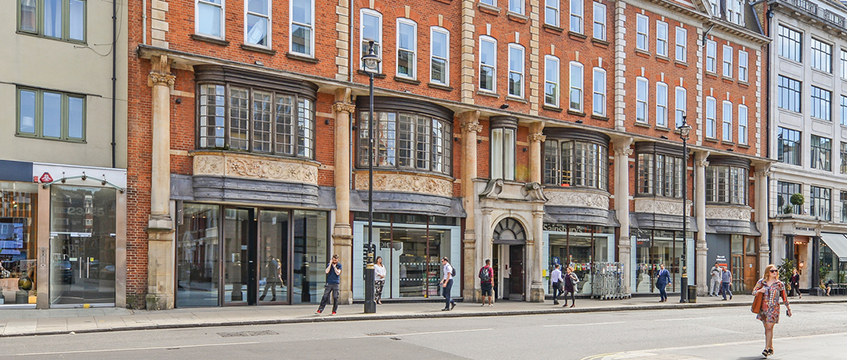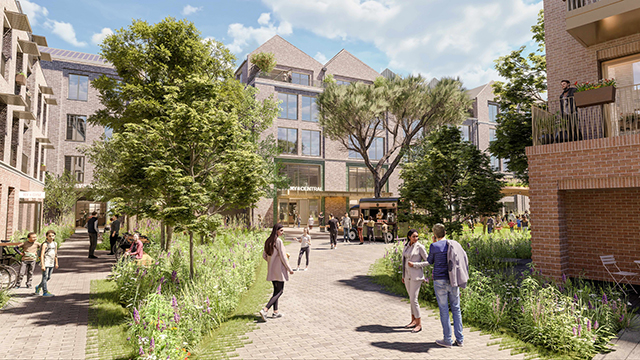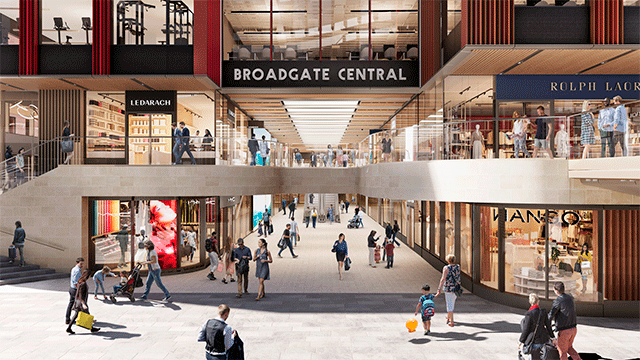The benefits to athletics, the sportsmanship and the big celebration: great reasons in themselves to host the Commonwealth Games. But the games need to be matched by continued good urban governance, some tough decisions, and an even stronger city centre if Birmingham is to make the most of its legacy.
London’s lost decade
Parts of London have benefited economically from the legacy of the Olympics, especially in the East End where local leaders worked with the grain of changes taking place in the city’s wider economy, such as the need for new housing. Stratford saw the fastest rate of housing supply of any neighbourhood in England and Wales; and the boroughs just outside the Olympic Park saw jobs grow at a rate of 8% against 5% for London as a whole in the two years prior.
But, London’s wider economy has experienced a lost decade since the financial crisis (see figure 1). Productivity – output per hour – grew by only 0.1% a year from 2008 to 2018, lower than the national average of 0.3%, and much lower than London’s pre-crisis trend of 2.8% a year.
Correspondingly, figure 2 shows that this loss of output was felt by workers. While wages in London grew at an average of 2.1% every year from 1998 to 2008, real wages in London were lower in 2018 than they were in 2008.
London’s record following the Olympics was brighter in terms of jobs growth – between 2013 and 2019 London added over 780,000 jobs, roughly 29% of all those created in the UK. But it does suggest that the Olympics had little impact on the capital’s wider economy, even if the East End benefited enormously. Bread-and-butter policy issues in the rest of London, such as housing affordability, congestion and urban mobility, and provision of commercial and industrial space were not successfully addressed, and dragged on the city’s economy.
Manchester’s boom
Manchester hosted the Commonwealth Games in 2002 – 20 years ahead of Birmingham’s turn to host them. Since then, Manchester has experienced a remarkable economic renaissance, after a difficult postwar period. The total number of jobs across the city grew by 41% from 1991 to 2019. The obvious question is what role did the Commonwealth Games play in that?
The answer is they complemented good city leadership and favourable trends in the local and global economy. Other cities over this period also experienced economic renewal, as technological and social changes powered a “return to the city” across the developed world after decades of postwar decline. City centres became particularly important, as they offered workers and firms special advantages towards sharing information and ideas that were now more important than ever.
Other cities saw even more dramatic changes than Manchester, as figure 3 demonstrates. Brighton saw total jobs more than double from 1991 to 2019. Brighton’s city centre was key here; between 1998 and 2011, it accounted for all of the city’s overall growth in private sector jobs. London also saw dramatic growth.
By contrast, Birmingham is a little behind but picking up steam. The total number of jobs across the city increased by 17% from 1991 to 2019, but most of this gain has been over the past decade. Yet even before that, Birmingham’s city centre was key; the number of jobs in the centre grew by 17% as well, but from 1998 to 2011.
In other words, the Commonwealth Games in Manchester arrived in a city that was already on the up, and successfully managed to carry its economic renaissance through a further two decades. This was largely because of the work that was done to rejuvenate Manchester’s city centre. About 70,000 jobs were created in the centre of Manchester between 1998 and 2015, which is roughly half of all the jobs that the city added over this period. The careful support of new office space, a densification of the built environment, and investment in urban transport all required lots of tough decisions by local leaders. But they unlocked that growth after the starting gun of the Commonwealth Games.
Bullish on Birmingham
The same is true for Birmingham and is the reason it faces a promising situation. The local economy is heading in the right direction, and strong local institutions, including the metro mayor, are driving a broader programme of change across the city, especially in the centre. Tough decisions, such as creating the Clean Air Zone, are taken in the knowledge they will make the city a better place to live and work.
The Commonwealth Games will mark a much-needed break from the past year we have all had. But ensuring they leave a positive legacy will depend on critical thinking about what needs to come after, and on delivering good governance that goes with the grain of the urban economy and allows the city centre to flourish.
Anthony Breach is a senior analyst at Centre for Cities











